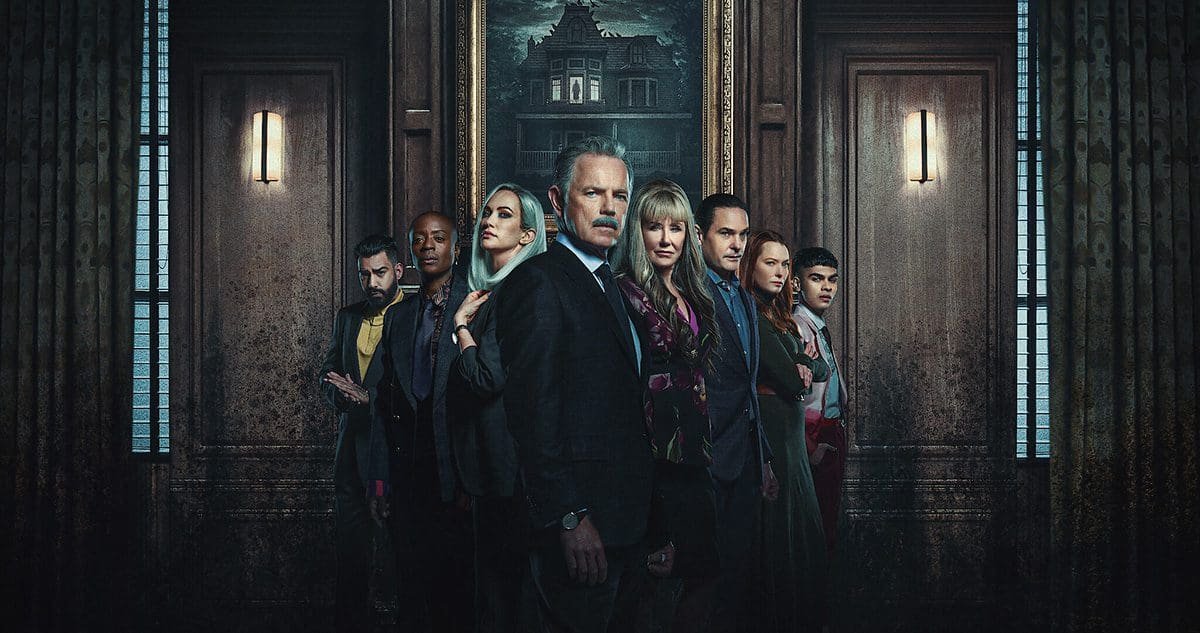
The Fall of House Usher: A Theory of the Seven Deadly Sins
The Netflix show, The Fall of House Usher, has captivated audiences with its Gothic atmosphere and mysterious plot. It tells the story of the Usher family, whose lives are haunted by tragedy and secrets. But a fan-made theory has emerged that adds another layer of intrigue to the already complex narrative. The theory posits that each member of the Usher family represents one of the seven deadly sins. In this blog post, we will explore the theory and examine which characters embody which sin.

Madeline and Roderick both embody the sin of greed.
Madeline and Roderick Usher, the notorious troublemakers, faced a tumultuous childhood with their mother’s untimely death and an absent birth father who disowned them. Despite being the rightful heirs to the Fortunato empire, the Ushers had to start from the bottom and devise cunning plans to conquer the corporate ladder. Bound by a pact forged in their youth, they pursued wealth and success relentlessly, at any cost. Their insatiable greed and lust for power ultimately led them astray, forsaking any sense of morality along the way.

Camille is most aligned with envy.
Meet Camille, the master of manipulation in her family. Envy runs deep within her, but she’s no stranger to other cardinal sins either. However, it’s her jealousy and insecurity that steal the show, especially when it comes to her sister, Victorine. In Camille’s eyes, Vic is a force to be reckoned with, poised to revolutionize the world, and it drives Camille mad. This obsession leads her to cross into Vic’s territory, desperately searching for ways to bring her down. But little does she know, this quest will lead to her own tragic downfall. Brace yourself for a gripping tale of rivalry and consequences.

Perry represents lust.
He is so blinded by his desire for sex and money that he neglects to check the factory’s hazardous sprinkler system before his party. Additionally, his red mask is a nod to the infamous mask of the Phantom of the Opera, a character who is often connected with themes of obsession and lust.

Tamerlane embodies gluttony.
Indulgence personified, Tamerlane embodies the spirit of excess. She becomes fixated on unveiling her innovative lifestyle brand, Goldbug. She convinces herself that it will revolutionize how people perceive her tainted family. Lost in her own illusions, Tamerlane confesses that she chose her husband, Bill, for his marketability and ability to represent Goldbug. Their connection lacks depth, as she merely watches him engage with sex workers. As tragedy strikes her siblings, Tamerlane remains determined to launch her product. But her insatiable appetite consumes her, leaving her unable to confront reality. The impact of her demise through a mirror is hauntingly profound.

Leo is sloth.
Introducing Leo, the infamous Usher sibling associated with the sin of sloth! But that’s not all that defines him. Leo, aka Napoleon, has a knack for taking credit for other people’s victories while indulging in a world of drugs. Rather than toiling away like his hardworking siblings, Leo channels his wealth into an exciting video game venture, fueling the creativity and triumph of other talented individuals. Brace yourselves for an exhilarating journey into Leo’s unique world!

Victorine represents pride.
Victorine’s entire identity revolves around her work. She keeps her failures a secret, like when her experimental chimp dies and she refuses to acknowledge it. She even hides the truth from her father, who funds her research. It’s clear that Vic is driven by pride. When asked what’s more important – fame or saving lives – Vic’s answer is fame and success. She will do whatever it takes, even manipulate and kill, to achieve her ultimate goal. Unable to face her shortcomings, Vic is haunted by the constant beeping of her failing heart machine, until she ultimately decides to end her own life.

Frederick embodies wrath.
Introducing Frederick, the eldest Usher sibling, also known as Froderick. He’s one of the few family members who reveals his true, monstrous nature as the series unfolds. Discovering his wife’s betrayal, Frederick becomes consumed with a desire for revenge. Exuding wrath, he actively hinders her journey toward healing, seeking solace in his own self-destructive path. Brimming with anger and self-loathing, Frederick’s tumultuous journey concludes in a fittingly violent manner in The Fall of the House of Usher storyline.
The theory of the seven deadly sins adds an interesting layer of depth to The Fall of House Usher.
It paints the characters in a new light and allows viewers to analyze their actions and motivations through the lens of sin. However, it is important to remember that this theory is fan-made and not necessarily endorsed by the creators of the show. Nonetheless, it is a fascinating interpretation of the Usher family’s story and adds to the overall appeal of the show



